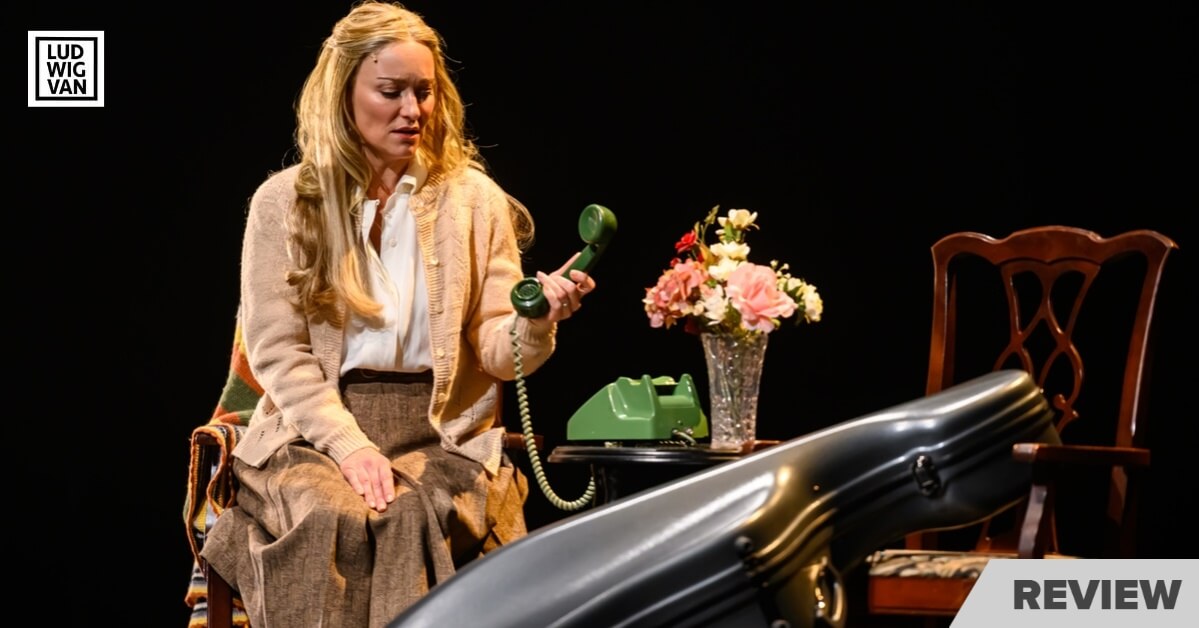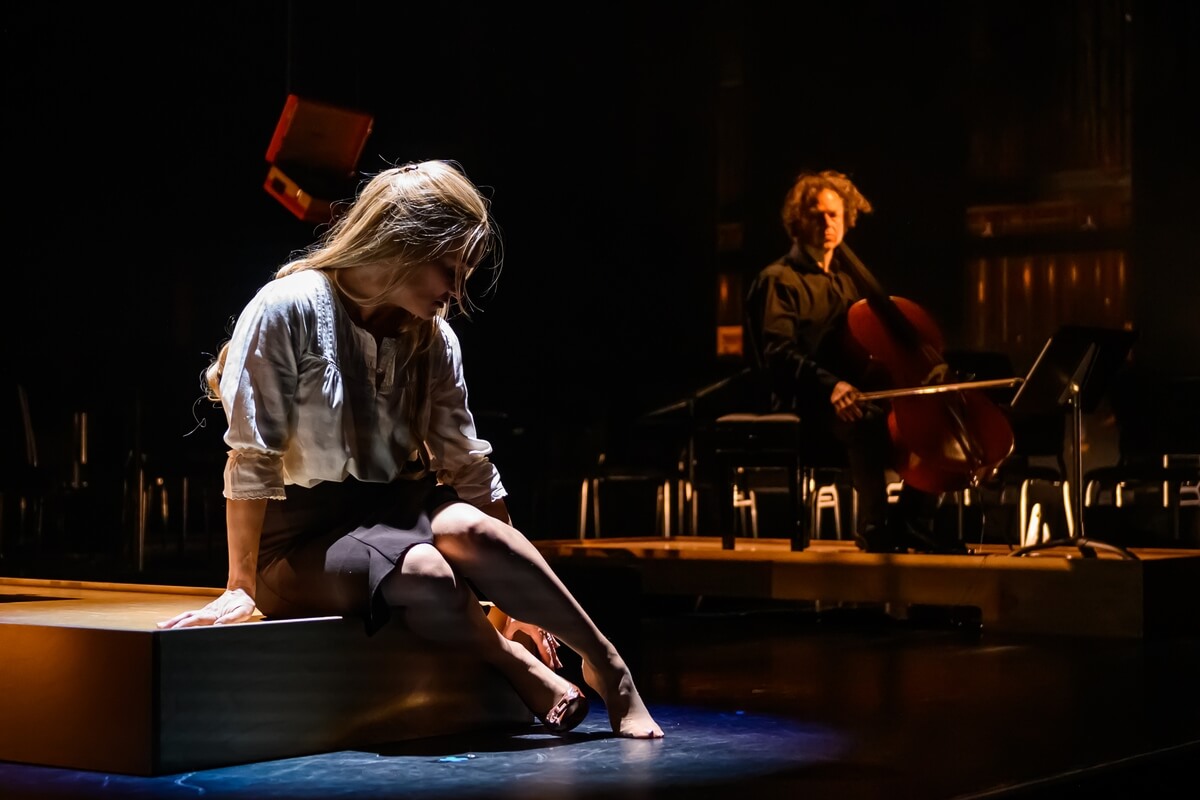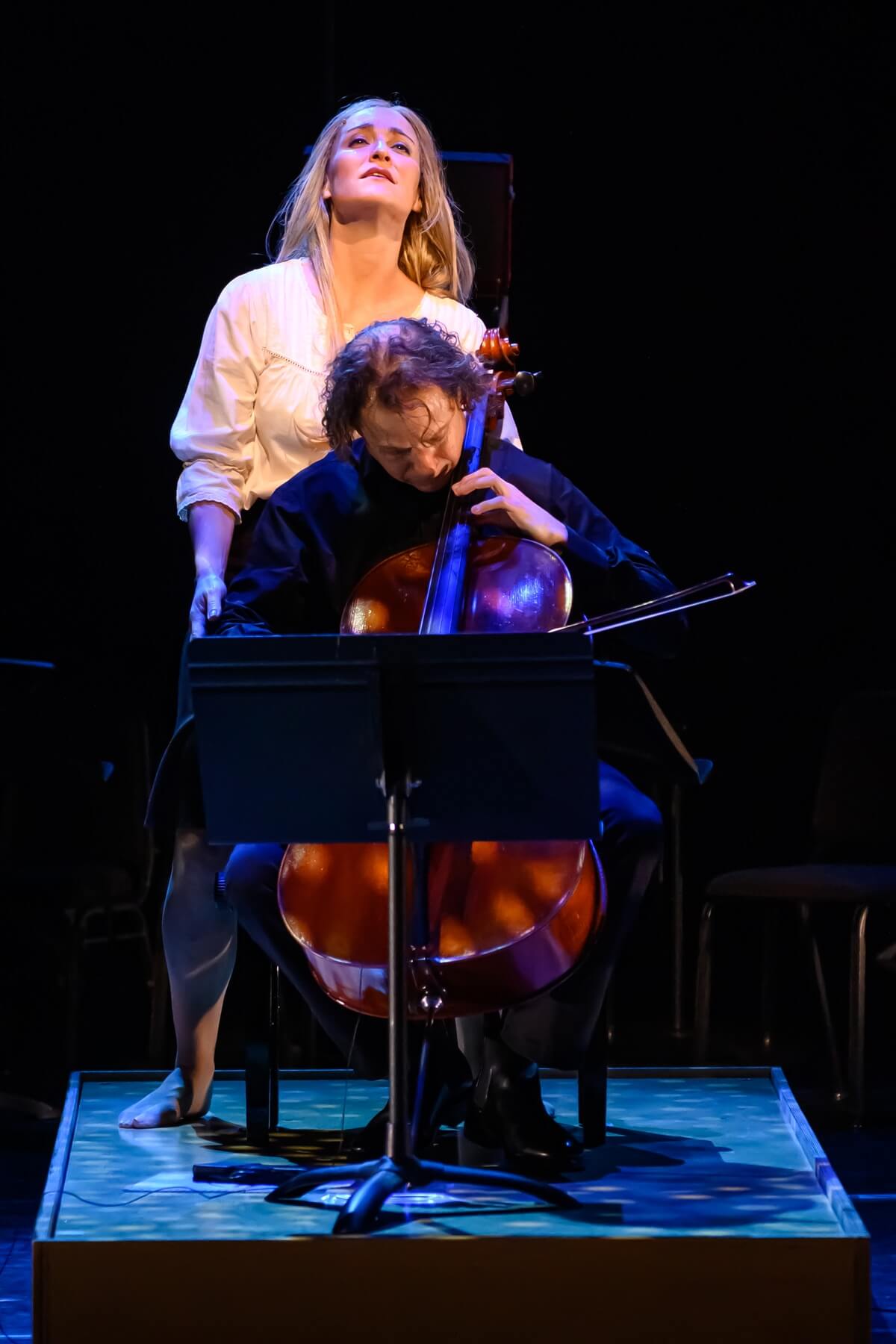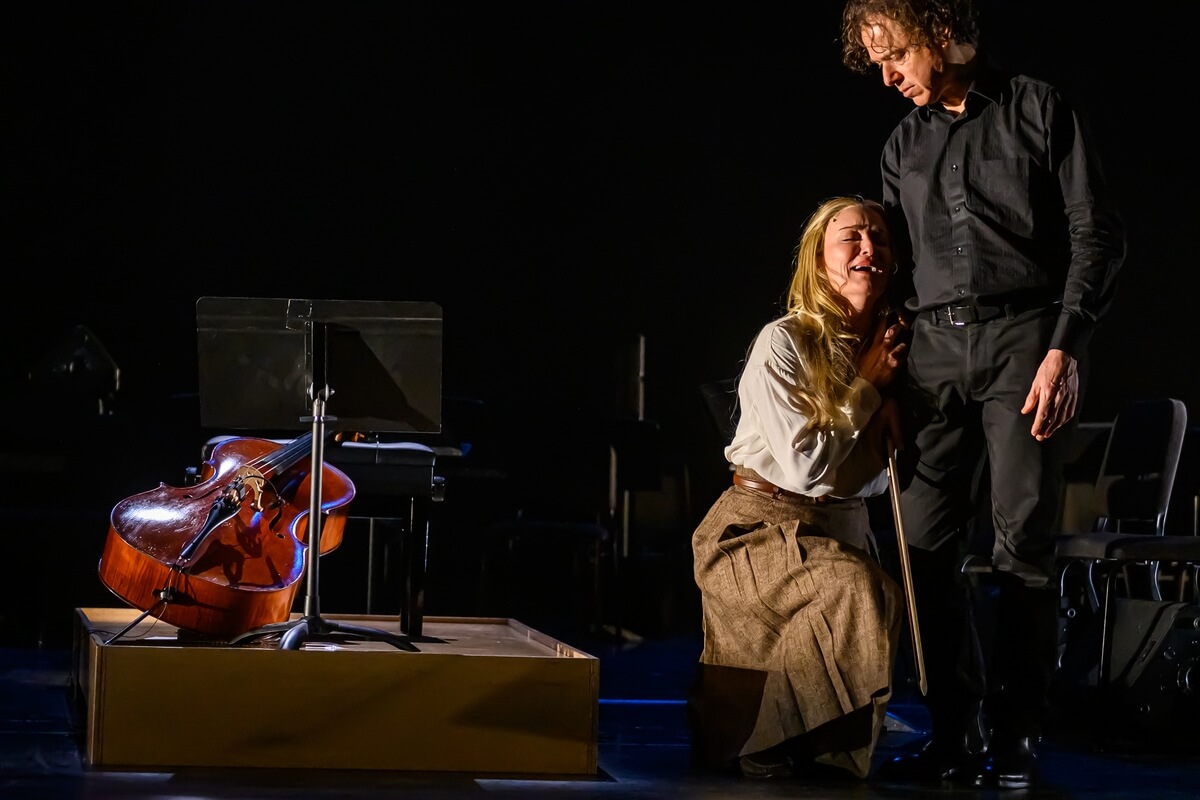
Woolf: Jacqueline / Marnie Breckenridge, soprano; Matt Haimovitz, cello. Betty Oliphant Theatre, 404 Jarvis St., Toronto. 8 p.m. February 19, 2020.
For devotees of the cello, few artists past or present capture the imagination quite like Jacqueline du Pré (1945-1987). In a performing career that lasted barely a decade before she was struck down by multiple sclerosis at the age of 28, du Pré left an indelible imprint on the musical world with her dazzling artistry and incandescent personality.
Arguably the work most associated with her was the Elgar Cello Concerto in E minor, Op. 85. I didn’t have the good fortune of hearing her live, but her recorded performances and interpretations of this work, both in the studio and in live performances, remain the gold standard. In the various video clips, one is struck by the radiant expression on her face, one that exudes the purest joy of music-making. The musical world is fortunate to have her art preserved for posterity.
Composed near the end of Elgar’s life, his cello concerto has an indescribable melancholia, an autumnal quality that one would think is unsuited to a young artist at the beginning of a career. Not so when it comes to Jacqueline du Pré — her ability to plumb the depths of this masterwork for its kernel of truth remains unparalleled. I am referring to both the studio recording with Sir John Barbirolli and the live recording with Barenboim. These are performances to honour and enjoy.

Now 33 years after her death, du Pré is still very much in our consciousness. By a curious coincidence, two days separated two world premieres of works associated with du Pré. On Monday, February 17, a new ballet The Cellist by choreographer Cathy Marston premiered at the Royal Ballet Covent Garden in London to critical and audience acclaim.
Now two days later, a packed house at the Betty Oliphant Theatre witnessed Jacqueline, a new opera by composer Luna Pearl Woolf and librettist Royce Vavrek, under the auspices of Tapestry Opera. Like the cello concerto, the 90-minute piece is divided into four movements — “Star Birth,” “Super Nova,” “Meteorite,” and “Impact.” While it’s said that the opera is inspired by the concerto, the connection is not as deep as I had expected.
An intimate work, it’s performed by American soprano Marnie Breckenridge and cellist Matt Haimovitz. It explores the inner emotional world of du Pré, from the very beginning of her learning to play the cello, to near the end when MS has robbed her of her mobility. Through it all, the one constant is the cello, here personified by the brilliant playing and the physical presence of Matt Haimovitz. The staging is quite ingenious, with objects, an LP, a record player, a microphone, et cetera dropping from the ceiling at strategic points in the narrative. The chairs, representing an unseen audience, are orderly until the end, when the piece becomes chaotic, underscoring du Pre’s disintegrating world.

One thing that surprised me was an intermission. My first thought was that it would work better for the flow of the drama if it were performed uninterrupted. Perhaps it would be true in an ideal world. But given the very demanding and lengthy vocal writing — especially in Movement III — for the soprano, plus the basically non-stop playing by Haimovitz, an intermission to give the two artists a bit of a rest is totally justified. It was quite a tour-de-force for both.
The work opened with some turbulent writing for the cello. Within seconds, I realized that it’s an unmistakable interpolation of the opening bars of the Elgar piece. Then for the rest of the 85-minute work, the musical language belonged entirely to the composer Luna Pearl Woolf. The Elgar concerto did not reappear until the very end, with almost the same quotation.
I admit that I tend towards tradition when it comes to new music. To my ears, new music tends to appeal to the intellect rather than to the heart. I am happy to say this is decidedly not the case here. Luna Pearl Woolf’s score is almost entirely tonal, lyrical, and most of all accessible, without sounding retrograde or heaven forbid, “old-fashioned.” To my ears, Woolf’s musical idiom suits the drama well. It should be mentioned that the narrative is non-linear but well executed to avoid any confusion.

The musical structure is quite conventional — yes, there are even arias! Two in Movement III. One that’s particularly touching is a lament, with du Pré telling her mum that she’s lonely and asking her to visit. The musical line brings out fully the vulnerability of the character. When du Pré rails against God for having her suffer this dreaded disease, the music takes on a more atonal and angular quality, although I thought a bit more fire and brimstone would be in order here. That said, kudos to Woolf for her beautiful musical idiom and her brilliant execution.
Congratulations also to librettist Royce Vavrek for capturing the essence of the du Pré persona. There’s plenty of funny parts early on, showing off du Pré’s droll sense of humour, with an abundance of vocal glissandi to go with that from the cello. When the narrative turns serious, so does the music. If I were to quibble, Breckenridge’s British accent is good without being idiomatic. The vocal writing for her is very demanding, one that pushes at the upper extreme of her range. But the singer is up to the task, offering a full range of tone colours, including an impressive pianissimo.
All this is possible because the cello is the only constant in her life, here anthropomorphized as Matt Haimovitz. It is her foil, her rock, and her salvation. Haimovitz the cellist was exemplary, and it was great that Woolf composed an extended solo for him, which he played beautifully. There were pre-recorded passages for the cello, giving it a fuller sound and a more variety of tone colours. At the end of Movement IV, the Elgar quotation reappeared. When the cello played that ascending line to the point when the orchestra is supposed to come in, it stopped abruptly. The light dimmed and then the stage went dark. A life interrupted. A perfect, moving end to an evocative work.
Four more performances to February 23. Details.
#LUDWIGVAN
Want more updates on classical music and opera news and reviews? Follow us on Facebook, Instagram or Twitter for all the latest.
- SCRUTINY | Toronto Mendelssohn Choir Opens Season With Deeply Moving Brahms Requiem - November 10, 2025
- PREVIEW| A Critic’s Pick Of The Met Opera Live In HD 2025-26 Season - September 29, 2025
- SCRUTINY | Ukrainian Art Song Summer Institute 2025 Concert A Deeply Moving Experience - August 20, 2025



